#Damnation De Faust
Text

Georges Dola “Damnation De Faust” Original Poster-Théatre-Opera (1893)
Source
46 notes
·
View notes
Text
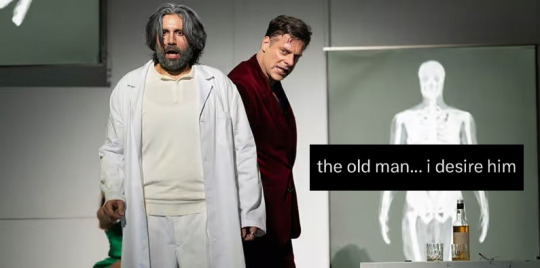
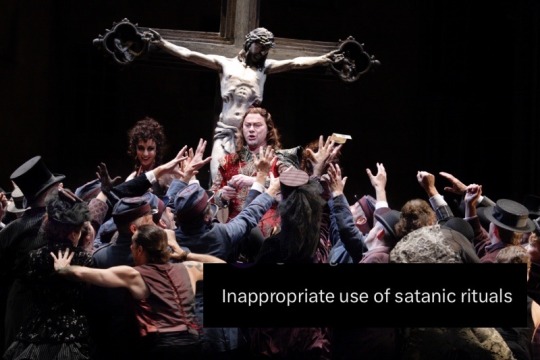




Unhinged AO3 Tags + Faust operas
Bonus Marlowe:

#faust friday#hot faust summer#gounod faust#mefistofele#la damnation de faust#doctor faustus#faustopheles#otp: as many souls as there be stars#i need a good source for screencaps from the globe faustus#there are tons of gifs but it's harder to paste text posts onto gifs
29 notes
·
View notes
Text
i’m sorry WHY is this so funny
#opera tag#opera#la damnation de faust#the damnation of faust#michael spyres#tenors…#berlioz#hector berlioz#IT’S SO FUNNY THOUGH
27 notes
·
View notes
Text

youtube
11 notes
·
View notes
Text
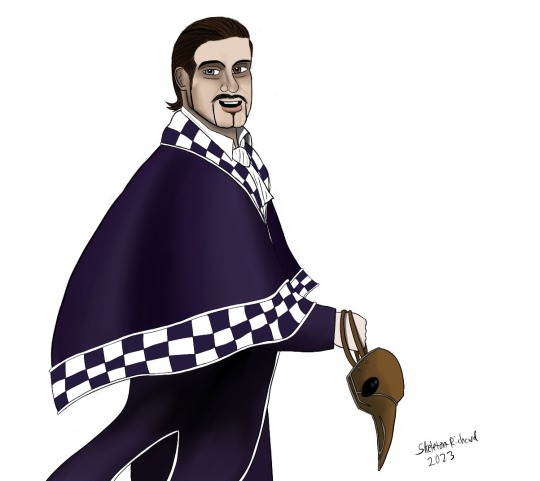
For @shredsandpatches, the amazing John Relyea, who has played multiple opera incarnations of Mephistopheles, dressed as Mephistopheles from Frau Faust by Kore Yamazaki!
#mephistopheles#faust#frau faust#john relyea#fyo can actually draw#la damnation de faust#since that's one of the faust operas he's been in (and was recently with a certain friend of mine ;)
7 notes
·
View notes
Text

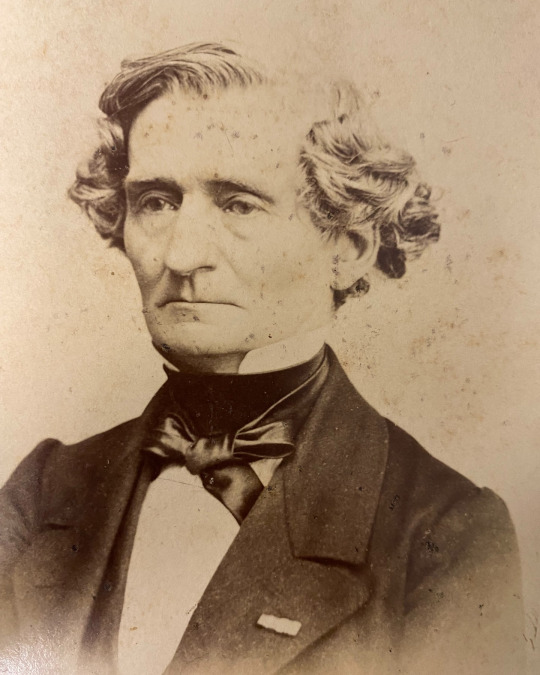
OTD in Music History: Nineteen-year-old Hector Berlioz (1803 – 1869) makes the first of what will become many contributions to the musical press when he publishes a letter in “Le Corsaire” in 1823, defending French opera against what he sees as “incursions” from Italian opera within the Parisian musical scene. (Berlioz contended that “all of [Giacchino] Rossini’s [1792 – 1868] operas put together” cannot withstand comparison with “even a few bars” of the works of Christoph Willibald Gluck [1714 – 1787] or Gaspare Spontini [1774 – 1851]. History has not endorsed this view.)
The son of a provincial French doctor, Berlioz attended a Parisian medical college before defying his family’s wishes and becoming a musician. He briefly moderated his style to win the famous "Prix de Rome" in 1830, but, as he later attested, he “learned very little” during his years at the Paris Conservatoire and he ultimately charted “his own course.” For many years, opinion remained sharply divided between those who hailed him as an original genius, and those who argued that his music lacked both form and coherence.
Berlioz completed three operas. The first, “Benvenuto Cellini” (1838) was a flop. The second, a huge epic entitled “Les Troyens” (“The Trojans,” 1858), was never staged in its entirety during his lifetime -- today some consider it to be one of the greatest operatic masterpieces of all time, while some hardly consider it at all. The third, “Béatrice et Bénédict” (1863), was actually a success at its premiere… but it has never truly entered the standard operatic repertoire.
Later in his career, Berlioz increasingly turned to conducting (he was one of the first “modern” conductors), and, to support himself, he also wrote voluminous amounts of criticism (he is generally regarded as one of the greatest music critics in history). His “Treatise on Instrumentation” (1844) was and remains a landmark work.
PICTURED: A lovely cabinet photo of Berlioz, published in Paris in the 1890s.
#opera#classical music#music history#bel canto#composer#classical composer#aria#classical studies#Hector Berlioz#Berlioz#classical musician#classical musicians#classical history#chest voice#historian of music#maestro#musician#musicians#Romantic composer#La Damnation de Faust#Paris Conservatoire#Orchestra#symphony#Overture#Oratorio#Huit scènes de Faust#Chamber music#Nocturne
13 notes
·
View notes
Text
The Devils I Know - Number 12
Welcome to “The Devils I Know!” For this spooky time of year, from now till Halloween, I’ll be counting down My Top 31 Depictions of the Devil, from movies, television, video games, and more! Today’s Devil is an operatic villain…literally!
Number 12 is Samuel Ramey. (pauses) Just…just Samuel Ramey.
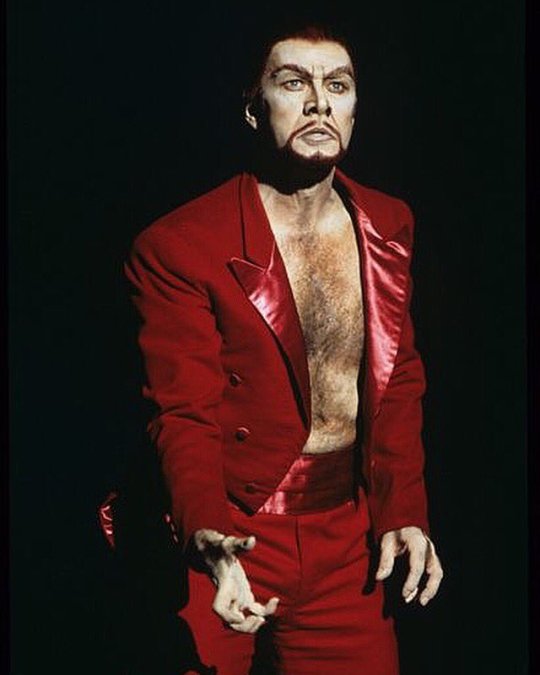
Now, the chances are VERY high that if you’re reading this, your immediate thought is, “Who is Samuel Ramey?” The answer is simple: Samuel Ramey is a performer – a singer and actor – who is probably most well-known to general audiences for his voicework in things like “Over the Garden Wall.” Beyond that, he’s most renowned for his work in opera.
Having said this, before I continue talking about this entry, I need to make one thing clear: I’m not a big opera buff. I respect and admire opera immensely, and I don’t believe the old cliché that “opera is boring” has much merit…but the simple and fundamental problem is that most of the great operas are written in any language but English. Which wouldn’t be a problem if it weren’t for the fact that I, personally, don’t understand any language BUT English. Seriously. I’m terrible with other languages; I can’t even speak or understand much Spanish, and I live about a hop skip and a jump away from the Mexican border. I took a French course in High School, and I think I’ve forgotten everything I learned there. It all goes in one ear and out the other. So, unless I’m watching a video with subtitles, and I’m REALLY riveted to what’s going on, I’m just not going to really “get” what I’m watching.
Thankfully, I’ve seen Ramey’s performances in such situations. Ramey is a renowned performer with many credits under his belt, but he’s probably most well-known for playing one role, which he has effectively made a career out of, and that is the Devil. More specifically, Mephistopheles in numerous productions of Faust…and with numerous librettos. In the world of opera, you see, there are no less than THREE separate operatic versions of the Faust legend, ALL of which are VERY highly respected and frequently performed. In order of when they were composed, there’s “La Damnation de Faust,” by Berlioz; Gonoud’s “Faust;” and Boito’s “Mefistofele.” All three of these tell the exact same story, with basically the exact same plot, but with obvious minor differences between each one. I like to call them “The Three Devils of Opera.”
Ramey has played Mephistopheles in productions of all three of these operas, and in all three cases, he has done so more than once. While the music and lyrics and some scene elements may change, his portrayal of the Devil in each of these is consistent. And when I think of Mephistopheles in ANY of these shows, it’s usually Ramey I think of. Ramey’s Mephistopheles is a figure of true fantastical power; he’s a grand and show-stealing figure who is impossible to take your eyes off of, and the simple fact this actor has played this same role in so many shows for so many years really does help to make him noteworthy. It’s the operatic equivalent of, say, Mark Hamill as the Joker: Hamill has not only played the same character for many years, but in many different adaptations, and every single time he’s awesome. Ramey is exactly the same with his portrayal of Faust’s tempter and deceiver. He’s become so well-known in the part, that Ramey actually went on a touring concert once singing different songs in his repertoire; the concert was appropriately called “A Date with the Devil.” Indeed, one could argue The Beast from “Over the Garden Wall” – his most well-known performance beyond the hallowed halls of opera – is really just another example of Ramey playing the Devil, given the way the fiendish monster is portrayed in the miniseries.
If you’re not into opera, watching or listening to any of Ramey’s performances probably won’t change your mind. However, for those who are interested, just to get you started…there are recordings of Ramey’s full performances from productions of “Faust” and “Mefistofele” available on YouTube (as of when I typed this, anyway). The former was recorded and aired on television and in theatres in 1995; the latter came earlier in 1989. In my opinion, these are the two finest examples of Ramey’s work with the Devil. Check them out as soon as you can. :)
Tomorrow, the countdown continues with Number 11!
HINT: An Eggs-asperatingly Evil Fellow.
#the devils i know#top 31 devils#fiction#best#favorites#list#countdown#october special#halloween advent calendar#theatre#opera#faust#mefistofele#la damnation de faust#gonoud#berlioz#boito#samuel ramey#number 12#mephistopheles
17 notes
·
View notes
Note
Good afternoon/evening Mr Liszt :) I was listening to Symphonie fantastique and I was wondering if Totentanz was inspired by it?
Good morning my dear pupil.
I suppose listening to the Songe d'une nuit de sabbat sparked this doubt.
Although our very strong friendship certainly has had some effect on the both of us - "Hamlet" he used to call me, Hector a fervent atheist with the strongest mystical experiences I have ever encountered - I'd suppose the clearest bond between our musical choices would be his idea to include the Hungarian march in La damnation de Faust, with all that the Ràkòczi March meant for me and all Hungarians abroad.
In the Symphonie Fantastique he included the gregorian canon for the Dies irae, which outdates us all by many centuries and has always been a stable for all students of music. Such a coincidence is incidental.
The Dies irae has been the basis for my "Dance of the Dead", Totentanz, as a self-explaining motive, and for some other compositions of mine such as one of the Mephisto-Walzer. The Totentanz, though its name nevertheless would suggest the such, has not been inspired by a chorea macabæorum, but by the medieval fresco called Triumph of Death located in the Monumental Cemetery in the Square of Miracles in Pisa. Its subject is the topos of three bodies found in the woods, that of a peasant, of a noble and a clergyman, all equal in death, and the struggle between forces of Good and Evil to capture the souls of the dead and condemn them either to Eternal Death or to be saved.
I enclose pictorial representation and video re-enactment from 17:50 onward
youtube
#franz liszt#franz antwortet#helpiminahotairballoon#totentanz#berlioz#symphonie fantastique#pisa#italy#hungary#rakoczi march#la damnation de faust
3 notes
·
View notes
Text
the hungarian march?
restored my will to live
1 note
·
View note
Text
Musical musings - TTTE edition
One of the things that got me back into TTTE was the banger soundtrack and character themes. Music has always been a huge part of my life, I have classical training for the piano and an in-depth knowledge of musical theory and harmonic practices for classical music. So here are some of the things I noticed about various character themes and some of the engines' whistles.
Gordon is considered to be the biggest engine out of the main 12, and this could be reflected in his whistle, as it has the greatest interval between the two notes which make it up, that being a minor seventh between C and Bb.
James' whistle (G - C#/Db) is a tritone/Augmented 4th/Diminished 5th. In medieval times, this interval was considered to be a representation of conflict, discord (no, not THAT Discord) instability and danger. You can hear it in pieces like the iconic opening to Camille Saint-Seans' Danse Macabre, and in Hector Berlioz's La damnation de Faust to represent the titular character's arrival in Hell. James, I've noticed, is pretty damn insecure. He clings to his red paint like a lifeline and hides behind a veneer of arrogance and vanity. He can be quite boastful, to the detriment of his relationships with other engines, with him usually being the aggressor in conflicts with them. So I suppose the use of a tritone for his whistle is appropriate.
Percy appears to (mentally) be the youngest of the main 12, and this could be represented by having the highest whistle out of all of them.
Thomas' character theme and Edward's Series 2 theme both feature modulations to the parallel major of the initial key's relative minor, with Thomas' theme starting in F major and ending in D major, and Edward's theme starting in C major and ending in A major. The "relative minor" of a major key is the minor key which shares its key signature (ex. the relative minor of F major is D minor since they share the same key signature of one flat, likewise with C major, A minor and a key signature of no accidentals). The "parallel major" of a minor key is the major key which shares its 1st note (AKA, the tonic). So....like mentor, like mentee. Or like Father, like Son, in terms of musical themes.
Henry's theme is in a quadruple meter (following an 8-measure phrasing pattern, likely 12/8 time), meaning that there are 4 beats to a measure. However, each one of these "beats" consists of a triplet(If you were to count out a measure, it'd be 1-2-3 4-5-6 7-8-9 10-11-12, and you'd conduct it like 4 beats instead of each of the 12 individual notes) And Henry is the number 3 engine. Hmm.......
If I think of any more, I'll post 'em. If anyone even reads this lol
P.S: One of my favourite OSTs is Kingdom Dance from Tangled, and every time I listen it, I think of the twins. Probably because it uses the E Dorian mode (with a dash of E Mixolydian) which is common in Scottish music. Just in case anyone's confused, the "Dorian" mode is an 8-note scale which starts on the second note of a given major scale. (e.g, E is the 2nd note of a D major scale, so its Dorian mode uses the same signature of 2 sharps). The Mixolydian mode is an 8-note scale which starts on the 5th note of a given major scale. (e.g, E is the 5th note of an A major scale and thus, its Mixolydian mode uses the same key signature of 3 sharps).
youtube
#music#classical music#music theory#musical analysis#ttte#thomas and friends#Hats off to Mike & Junior for creating such an iconic soundtrack#Youtube#dang this really just turned into a music lesson huh
76 notes
·
View notes
Text
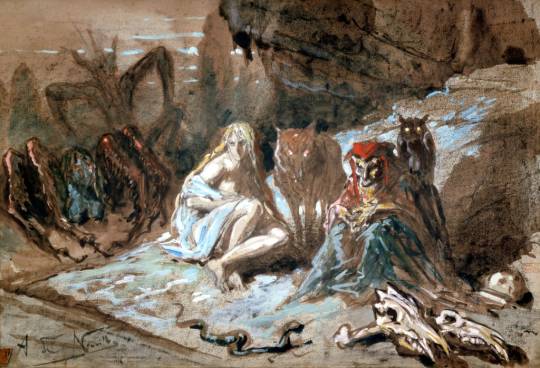
Alphonse Marie de Neuville - Witches and wolves, illustration for The Damnation of Faust by Berlioz
53 notes
·
View notes
Text
The Devil Has All the Best Tunes: Ranking the Mephistopheles Arias
Since getting myself properly acquainted with Arrigo Boito's Mefistofele, I've been thinking about how much the character of Mephistopheles brings out the best in opera composers, although that's only fitting, since he also did for Goethe. And the idea of this listicle suggested itself to me pretty quickly as something to think about while I was having a slow day at work on Friday. Thus! My completely idiosyncratic ranking of the eight arias sung by Mephistopheles over the three classic Faust operas:
La Damnation de Faust (1846), Hector Berlioz
Faust (1859, later revised), Charles Gounod
Mefistofele (1868/75), Arrigo Boito
All three operas are considered in their best-known forms—like, I know there's a recent recording of the 1859 version of Faust but I haven't heard it and it doesn't even have "Le veau d'or." I'm also not rating the specific performances I used for the audio/video illustrations—all of these are of course extremely well-represented in recordings and have many, many, many versions on Youtube (the playlist I made while prepping this post has like 56 and it's only a small fraction of them all). I just picked ones that a) I like and b) allowed me to use eight different singers for the eight arias.
Finally, in case you're wondering: all of these are actually fantastic. There's only one that I don't absolutely love and I still really like it. This is just a straight-up array of bangers from beginning to end.
Behind the cut: the bangers. Join us, won't you?
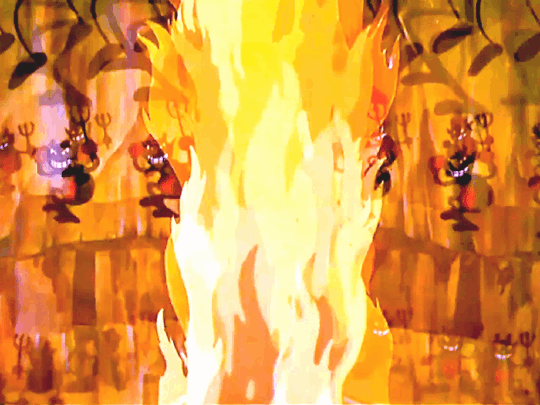
8. "Vous qui faites l'endormie" (Gounod)
(Text/translation)
So, here's the one I just like instead of being generally feral about. If this is your last-place entry in a ranking of arias you're doing fine. And it's basically right from Goethe! But while the evil laughter is fun, the melody just doesn't stick with me, and while comparisons are odious (pfft, right, I love comparisons) I think Berlioz did a much better job with this text.
That said, one way to make me love it is to have Bryn Terfel sing it while pawing at a strung-out (in-universe!) Roberto Alagna. What can I say, I'm a slut for Faustopheles content. (And I do love me some Bryn Terfel)
youtube
7. "Une puce gentille" (Berlioz)
(Text)
We now arrive, basically immediately, at the portion of the list where I unqualifiedly adore everything on it even without the benefit of particularly gay stagings. In general I feel that my rankings here don't quite reflect how much I love La Damnation de Faust (although longtime readers of this blog will have noticed), but I think the strength of the piece is not as much in the arias (although I love the arias) but in the duet and ensemble scenes. In any case this is a delightful number (again, directly from Goethe, also set to music by Beethoven and, later, Mussorgsky) which is also not even the strongest bass aria in the scene. I think we can all agree Brander comes out on top in the Auerbachs Keller bass throwdown, right?
As far as video choices go I always have mixed feelings at best about fully staged versions of La Damnation to begin with—performing it with onstage action belies the extent to which the most important action is psychological, and conversely there are some truly epic moments that are almost impossible to stage in a way that does justice to the music. That said: here's Ruggero Raimondi camping it up.
youtube
6. "Devant la maison" (Berlioz)
(Text)
Up above I mentioned that Berlioz does a better job with Mephistopheles' serenade than Gounod does—this is just a fun, snarky little trifle with a mock hurdy-gurdy accompaniment* and a collective evil laugh for the chorus. What's not to love?
Berlioz wrote some alternative readings into the Damnation score so that the role of Mephistopheles could be played either by a true bass or a baritone. I prefer the former (as do I think most contemporary conductors, as I haven't seen many other recordings that cast a baritone**) but Jules Bastin's lighter timbre suits the intricacy of this melody and his suavity contrasts well with the rough edges of the chorus.
youtube
*The libretto specifies that the singer of Mephistopheles should pantomime playing one, although this seems not to have been followed by most performers.
**There is one with Dietrich Fischer-Dieskau as Mephistopheles and Placido Domingo as Faust and, bafflingly, it sucks. Go figure.
5. "Ave Signor" (Boito)
(Text)
We aren't even quite into the top half of the list yet (I know! Like I said: THEY ARE ALL SO GOOD) and we're already getting to the real heavy hitters. This aria wins the special recognition for Outstanding Achievement in the Field of Cuntiness. Like, sure, you're leading your best demonic life, why NOT have a casual chat with the old man (il vecchio, lol) upstairs, pout about how humans suck so much it's no fun to even tempt them these days, and then make a little bet about that weirdo Faust, all to a jaunty little flute accompaniment? Magnificent. *chef's kiss*
Erwin Schrott never fails to bring the sass and that suits this aria perfectly. The leather jacket is an excellent touch as well. I want one. (I actually own a giant leather jacket but the collar doesn't do that. I want one where the collar does that)
youtube
4. "Voici des roses" (Berlioz)
(Text)
Okay, I'm gonna let you all in on a little secret which is that STRICTLY SPEAKING, from a musical standpoint, I probably should switch around this aria and the previous. But this one gets a generous helping of sentimental favorite points for two reasons:
a) I am, as discussed, a slut for Faustopheles content and this is the single most homoerotic Mephistopheles aria in the operatic Faust corpus. He calls Faust "beloved" (bien-aimé) and sings about how he's going to be covered with "crimson kisses" and it's amazing. And very, very gay.
b) I've been onstage while John Relyea sang this and I was part of the ensuing chorus, an extended, complex seduction/dream sequence which I am pretty sure took up about half the rehearsal period all on its own. When Mephistopheles sings his recitative at the very end of it ("c'est bien, c'est bien, jeunes esprits, je suis content de vous") it always made me so happy because yeah, we EARNED THAT. But the moment before the chorus section, hearing such a commanding singer perform such a beautiful and sexy aria and then coming into that and not breaking the mood—God, it was just pure fucking magic.
So here, of course, is John Relyea singing it. Not the production I was in, for the record. I probably don't need to clarify that I have never been in the chorus at the Met. (The video cuts off before the chorus anyway but does include "Une puce gentille" and the following recitatives, and I'm not sure YouTube lets you timestamp your links anymore so if you want to skip to "Voici des roses," start around 3:15. Or you could also listen to "Une puce gentille" again because John Relyea just crushes this role)
youtube
3. "Ecco il mondo" (Boito)
(Text)
Of the three great Faust operas, Mefistofele has its finger most firmly on the pulse of the sheer chaos muppet energy exuded by its title character. This aria reprises some of the motifs introduced in "Ave, Signor" (the jaunty flute line contrasting with the grandiose intervals of the vocal line) and revolves around some really fun stagecraft. In performance, during this aria Mephistopheles displays and then smashes a model of the world—the original libretto calls for a glass globe, while the most iconic modern production uses an ordinary latex balloon. Sometimes you'll see grouchy opera purists grumble online about the latter, and they are silly: it's a perfect reflection of Mephistopheles' disdain for the "filthy and mad" (sozza e matta) human race—and his perhaps more complex feelings about one particular representative thereof. I haven't seen enough versions of this opera to cite any performances where the second half of the aria is addressed directly to Faust, but there's some pretty fabulous potential there.
Going old school for the recording here, with Cesare Siepi. Found this one in a blog post that was mostly devoted to pearl-clutching about the Carsen/Levine staging (in its most recent revival) and the sight of Christian Van Horn in tights: the reviewer found Van Horn to be a second-rate version of Siepi (on vocal grounds, not shirtlessness grounds). Harsh, man, and I'm not even that into Christian Van Horn, at least not in this role. But this is a great recording all on its own. I'm not sure why they put Emil Jannings on the cover though.
youtube
2. "Le veau d'or" (Gounod)
(Text/translation)
What can I say? This one needs no introduction, really. It's one of the great operatic bangers of all time (and one of the most persistent earworms). It was in Hannibal (I think)! Its reputation precedes it and the only reason it's in second place here is because there's one more aria that's even more awesome.
I've always loved the way Rene Pape sings this—obviously you could eat the vocals with a spoon and his physicality lends a sort of Orson Welles-y* gangster energy to the role, but also there's something about his approach to it that gives you the sense that, as @skeleton-richard once put it, "he's been both the calf and the idiots in the mud." I also love that he gets to do a little dance in this version. LET MEPHISTOPHELES TWERK.
youtube
*And wouldn't late-period Welles have been PERFECT as Goethe!Mephistopheles? I weep for the lost opportunity.
1. "Son lo spirito che nega" (Boito)
(Text)
And here we are. This aria is just an absolute masterpiece, the greatest of a truly impressive array of bangers. It just captures everything we love about the character of Mephistopheles: the chaos and terrifying cynicism, the subterranean low notes, the compelling derision and mockery. The whistling! How can you not love it? The whole thing just makes my toes curl. It really sums up why this opera should be better known and loved, because fuck. Brain chemistry forcibly altered.
AND SPEAKING OF TOE CURLING. For this bravura composition, a bravura performance by the great Samuel Ramey. He absolutely owns this role and that's perhaps nowhere most evident than right here. Even if he doesn't do his own whistling.
youtube
#opera#faust#gounod faust#mefistofele#la damnation de faust#mephistopheles#mephistopheles monday#this was a lot of fun to make#should i tag all the individual singers?#or does tumblr still cut you off after five tags? idk
36 notes
·
View notes
Text
the interior of my brain sounds virtually exactly like this
#it’s the anxiety#opera tag#opera#la damnation de faust#the damnation of faust#berlioz#hector berlioz#la course à l’abîme#Spotify
6 notes
·
View notes
Text
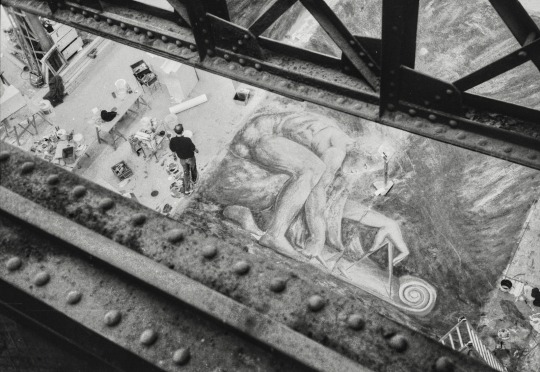
1989 Paris, théâtre du Châtelet, opéra de Berlioz “La damnation de Faust”, décor d'après William Blake. I was the painter
#1986#paris#vintage#blackandwhitephotography#photography#analog#decor#opera#berlioz#theatreduchatelet#kokkos#filmphotography#1980s#portrait#photooftheday#rollei35s#pierre wayser
25 notes
·
View notes
Text
Favorite Version of Faust
70 notes
·
View notes
Text
La Damnation de Faust: "Su queste rose (Voici des roses) " · Hector Berlioz · Mattia Battistini
The composer Hector Berlioz, born 220 years ago today.
#classical music#opera#music history#bel canto#composer#classical composer#aria#classical studies#maestro#chest voice#La Damnation de Faust#Su queste rose#Voici des roses#Hector Berlioz#Berlioz#Mattia Battistini#Battistini#baritone#King of Baritones#Royal Opera House#Covent Garden#Metropolitan Opera#Met#La Scala#Mariinsky Theatre#Bolshoi Theatre#classical musician#classical art#classical musicians#classical voice
3 notes
·
View notes